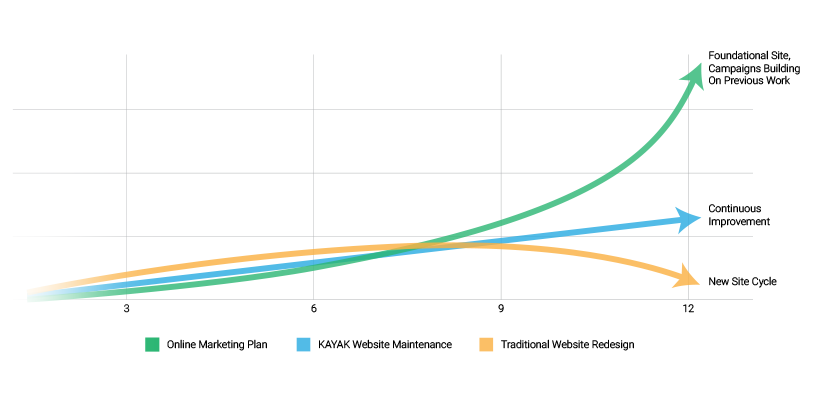
Several times a week, I field calls from potential clients that are looking for a new website, a new content management system, or help with a new tool they've purchased that will help them to finally succeed online.
Most often, a new site or tool isn't always the best solution though. To be sure, some are held back by poor websites (especially if they aren't responsive), or by the poor advice they'd received previously.
But in the end, the majority struggle to grow traffic, excel in social, or attract new leads simply because they haven’t made the most of what they already had at their disposal; knowledge of their audience and familiarity with strategies required to access them.
My advice to them is that the sculptor is always more important than the tool. A redesign doesn't solve strategy or knowledge issues.
You see the same phenomenon in the popularity of crash diets. People who are looking to improve their health or appearance get excited about some fad (have you seen those fat loss injection ads?), try it for a bit, and then lose momentum, yoyo-ing back to old habits.
They move from one quick fix to another because it's psychologically easier. We see the same thing in website redesign, where every year a site is redone in hopes of improvement. But without a solid strategy in place, the redesign improvement is temporary (see the gold line in the chart).

We don’t want you to take that kind of approach with your website health either. Your online presence is far too important, and the costs of having a brand-new website built every year or so can be huge. So, to help you break the crash diet cycle of wiping the slate clean and starting again and again, here are a few things we hope you’ll keep in mind…
In marketing, there's a perception that newer must be better. After all, Google, Facebook, and the Internet as a whole are always changing. It only makes sense that you should keep adding new elements to your plan to keep up, right?
The reality is that newer isn’t always better, even on the Internet. In fact, chasing the latest trends can lead you to follow fads that aren’t particularly productive, especially when you look at the results over the long run.
If you have a workable site, it’s better to be consistent in your marketing – building your presence through great content and social engagement – than it is to try to keep up with a handful of competitors who may be looking to game the system or are making changes just to make changes.
There is a time for change and innovation, of course, but smart marketers make these decisions carefully. When you go with something new just for the sake of change, you often end up with a less-effective, more expensive system that’s harder to use, even if it's simply due to lack of familiarity.
Regardless of whether you are using WordPress, HubSpot, Infusionsoft, wpSites, Magento, or any other website platform, you can be sure of one thing: you won’t get anything from your investment of time or money unless you are committed to using it.
We could fill an entire book with stories of marketers and business owners who thought that a particular content management system was going to magically solve all of their problems (as stated in the sales material).
But, after paying for the upgrades and having a new web presence built around the tool in question, they failed to take advantage of it. Either they never learned how to use the package in the first place, or didn’t get around to implementing its most powerful features.

The lesson here is that no marketing tool is valuable unless you put some time and effort towards mastering the strategies around deploying it. Whether it’s built on the simplest piece of open-source software or the most complicated subscription platform, it’s up to you to make your website go.
Most businesses really don’t need a fresh start online. Instead, what they need is a sustainable platform coupled with knowledge on how they can use it to draw in visitors, convert them into leads, and move them into sales. That kind of strategy builds business. In other words, they need a plan that works on common-sense principles and can be expanded over time, regardless of the tool.
If you can stay focused on your long-term goals and work on incremental additions and improvements, you can avoid the trap of opting for a crash diet that’s going to supposedly fix everything with your website.
It might be frustrating to take things more slowly, but it also happens to be the more profitable approach over time.